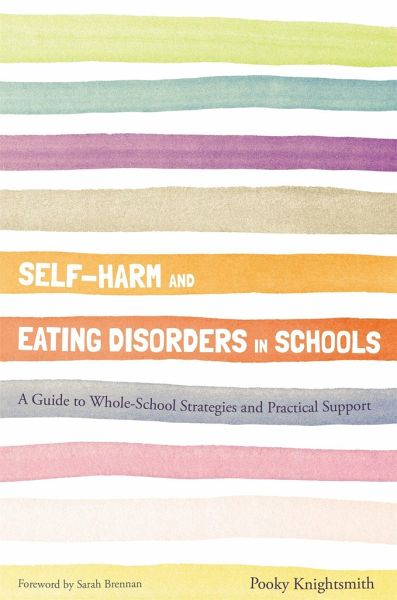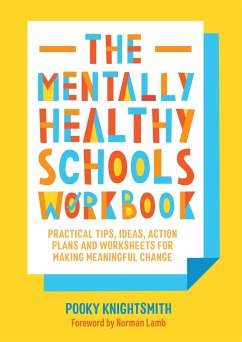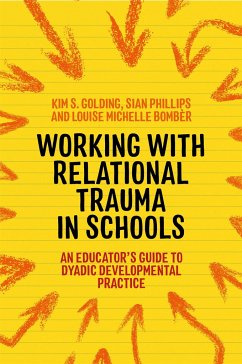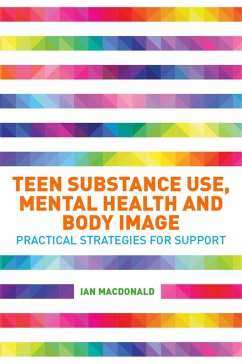
Self-Harm and Eating Disorders in Schools
A Guide to Whole-School Strategies and Practical Support

PAYBACK Punkte
17 °P sammeln!
With steadily increasing incidences of self-harm and eating disorders among students and long waiting lists for specialised support, schools have a more active role than ever in supporting young people with these issues. This guide provides information and guidance on how to help students from whole-school policies to day-to-day strategies.













